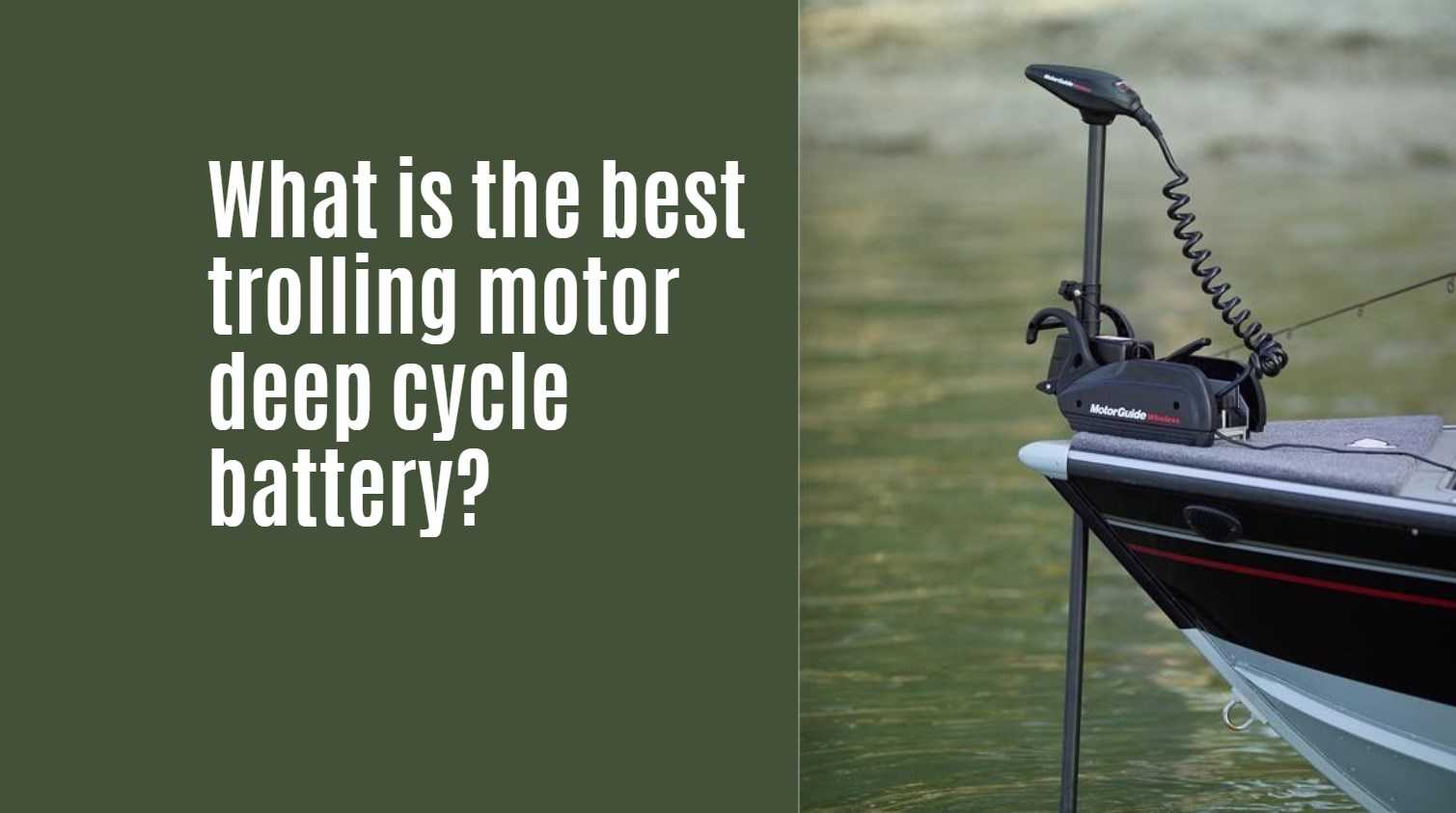Choosing the best deep cycle battery for your trolling motor is crucial for ensuring optimal performance and longevity on the water. Here’s a comprehensive overview of the top options available, along with key considerations to help you make an informed decision.
Types of Deep Cycle Batteries for Trolling Motors
- Lead-Acid Batteries:
- Flooded Lead-Acid Batteries: These are the most common type of deep cycle batteries. They are cost-effective and can deliver reliable power but require regular maintenance, such as checking water levels.
- Absorbed Glass Mat (AGM) Batteries: AGM batteries are sealed and maintenance-free. They are more resistant to vibration and can handle deeper discharges compared to flooded batteries, making them a popular choice for trolling motors.
- Enhanced Flooded Batteries (EFB): These offer improved performance over standard flooded batteries and are designed for deeper cycling.
- Lithium-Ion Batteries:
- Lithium batteries are becoming increasingly popular due to their lightweight design, longer lifespan, and faster charging capabilities. They can be discharged more deeply without damage, providing longer run times.
Top Recommendations for Trolling Motor Batteries
- Dakota Lithium 12V 100Ah Battery
- Type: Lithium
- Pros: Lightweight, long-lasting (up to 2000 cycles), can be discharged up to 80% without damage.
- Cons: Higher initial cost compared to lead-acid options.
- Interstate Marine Deep Cycle Battery
- Type: AGM
- Pros: Proven reliability, maintenance-free, good performance in various conditions.
- Cons: Heavier than lithium options and may have a shorter lifespan.
- Deka Intimidator AGM Battery
- Type: AGM
- Pros: High vibration resistance, excellent reserve capacity, and spill-proof design.
- Cons: More expensive than traditional flooded batteries.
- MillerTech Lithium 12V 135Ah Dual Purpose Battery
- Type: Lithium
- Pros: High capacity, suitable for both starting and deep cycling, fast charging.
- Cons: Premium price point.
- EverStart Marine 29DC Battery
- Type: Flooded Lead-Acid
- Pros: Budget-friendly, widely available, decent performance for casual use.
- Cons: Requires maintenance and has a shorter lifespan compared to lithium options.
Key Considerations When Choosing a Trolling Motor Battery
- Capacity (Ah Rating): Choose a battery with sufficient amp-hour (Ah) capacity to meet your trolling motor’s power requirements. A higher Ah rating typically means longer run times.
- Weight: Consider the weight of the battery, especially if you’re using it on smaller boats or kayaks where weight distribution is crucial.
- Charging Time: Lithium batteries generally charge faster than lead-acid batteries, which can be an important factor if you need quick turnaround times.
- Cycle Life: Look for batteries that offer a high number of charge cycles. Lithium batteries often last significantly longer than lead-acid counterparts.
- Maintenance Needs: Decide whether you prefer a maintenance-free option like AGM or lithium batteries or if you’re comfortable with the upkeep required for flooded lead-acid batteries.
Latest Trends in Trolling Motor Batteries
- The trend is moving towards lithium-ion technology due to its numerous advantages over traditional lead-acid batteries, including weight savings and longer lifespans.
- Manufacturers are increasingly focusing on developing hybrid battery solutions that combine features of both lithium and lead-acid technologies for enhanced performance.
Redway Expert Comment
“In our experience at Redway Battery, selecting the right trolling motor battery is vital for maximizing your time on the water. While lithium options like Dakota Lithium provide exceptional performance and longevity, traditional AGM batteries like those from Interstate remain reliable choices for many boaters. Assessing your specific needs regarding capacity, weight, and budget will help ensure you make the best choice for your trolling setup.” In conclusion, the best trolling motor deep cycle battery depends on your specific needs and preferences. Whether you opt for a high-performance lithium battery or a reliable AGM option, understanding your requirements will help you make an informed decision that enhances your boating experience.



